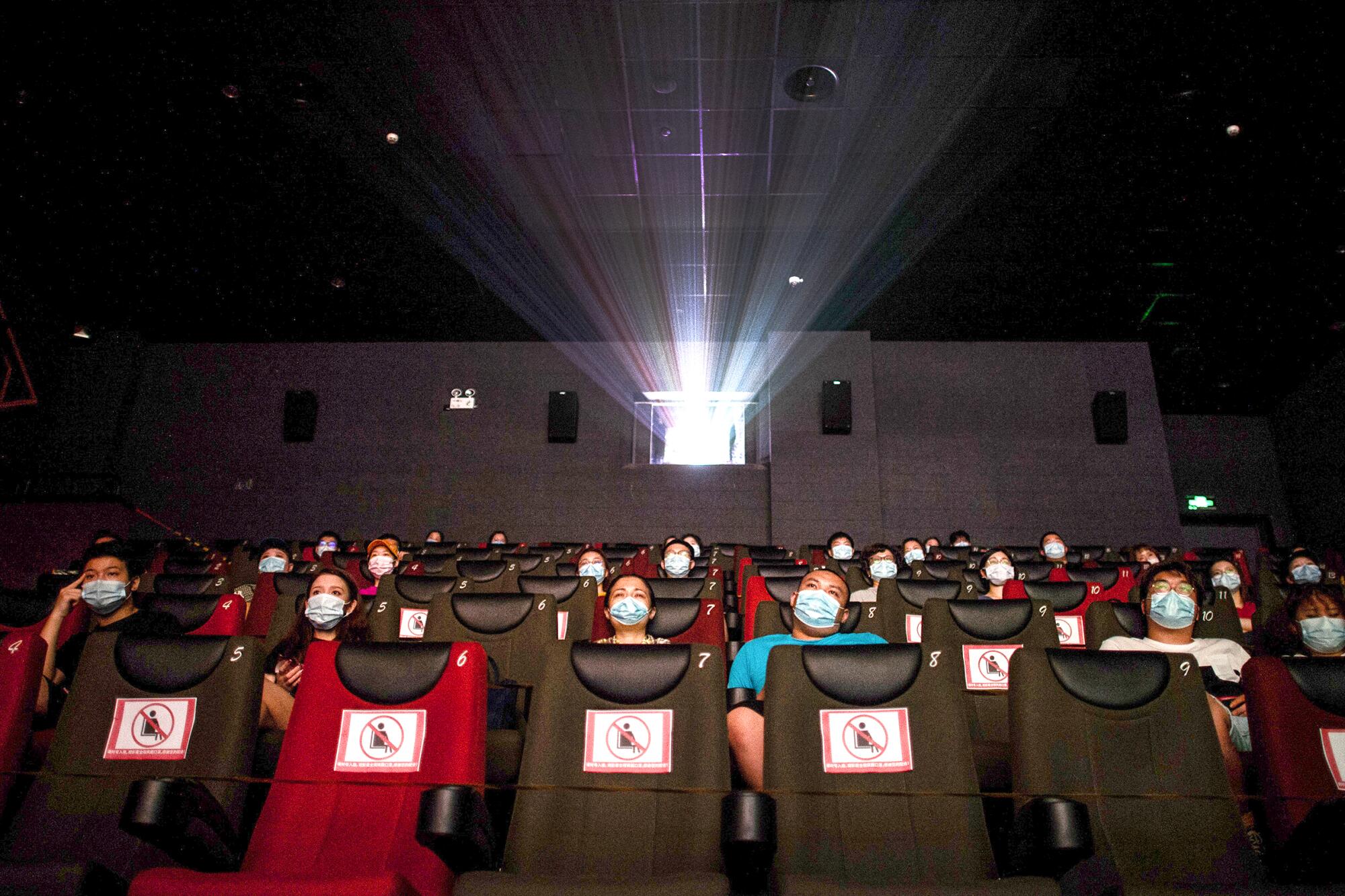
- Share via
SHANGHAI — Young couples in cashmere coats and surgical masks stood recently in neon light outside the Cathay Theater, its Art Deco facade a remnant of the Shanghai of nearly a century ago, when a wave of cinemas arose amid a city run by gangsters and colonialists.
If you were an expat back then, it was a romantic time of intrigue in a town carved into French, British and American sectors. If you were Chinese, you were a second-class citizen in your own land. There were few more defining symbols of who was on top than in Shanghai’s movie houses, where the indelible notions of the West — high society and capitalism — played out in black and white.
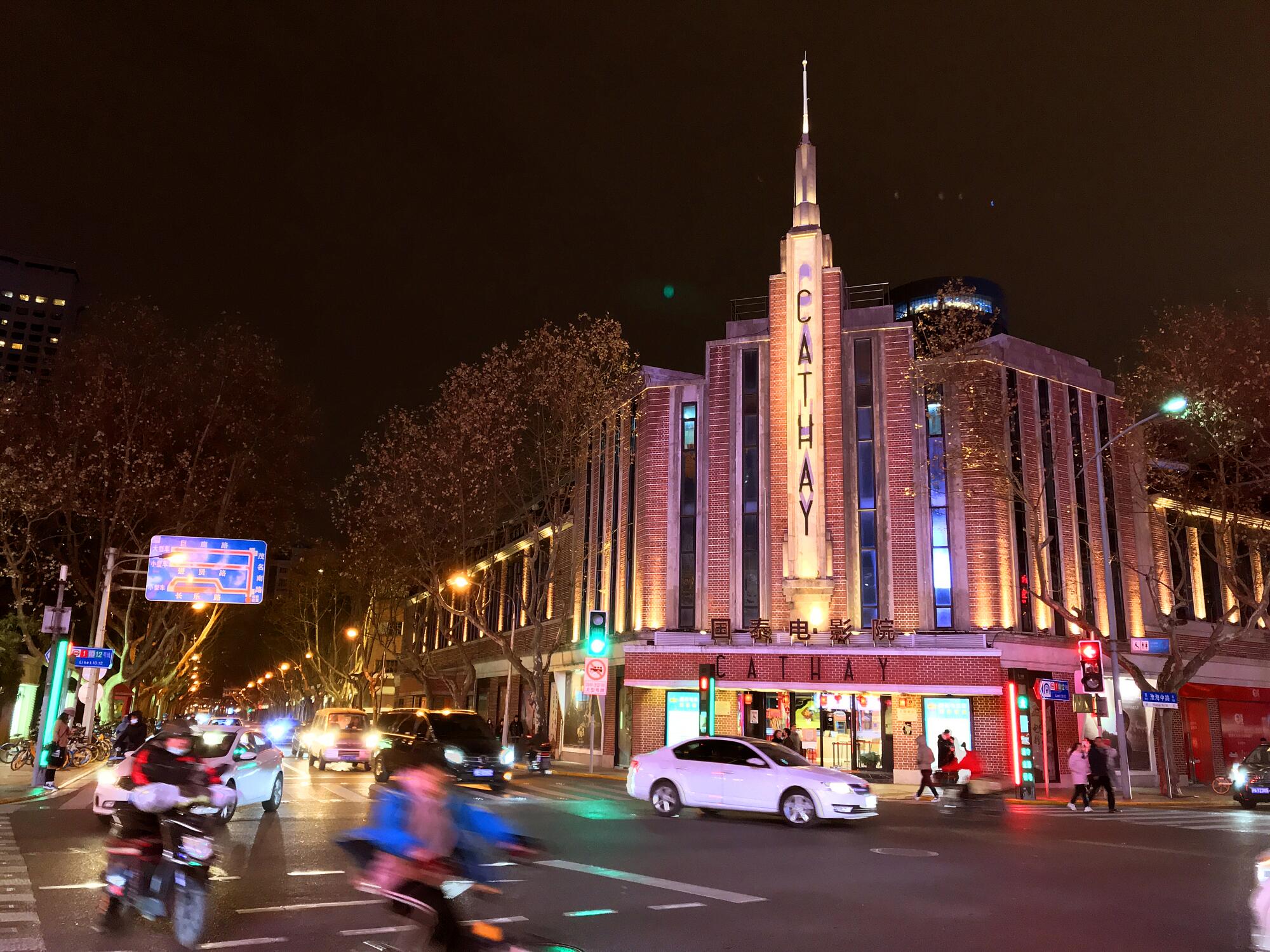
These days, a different global order is unfolding. As China ascends as a world power, the films in its cinemas have changed. The Hollywood reboot “Wonder Woman 1984” was showing at the Cathay on a recent night. But most posters in the lobby were for movies produced by China’s ever-expanding film industry, including an action tale of the government’s campaign to crush “dark social forces” and “two-faced people.”
Even in this city, famed for its capitalistic leanings and Western flair, the choice of films made clear that Beijing, not Hollywood, was in charge of the narrative.
Movies in China grossed $2.7 billion in 2020, a decline from its pre-pandemic record of $9.2 billion the prior year but enough to surpass the United States and Canada as the world’s No. 1 box office. The Chinese film industry produced 1,037 movies in 2019 and 650 movies last year despite the coronavirus. China sold more than 548 million tickets in 2020 and over 1.73 billion in 2019, both ahead of North America. China’s more than 75,500 cinema screens are the most in any country.
But money and movie seats are only part of what’s at stake. Beijing has become increasingly adept at using its market share to advance Communist Party story lines while influencing — some would say coercing — Hollywood to self-censor so its films are not banned by Chinese authorities.
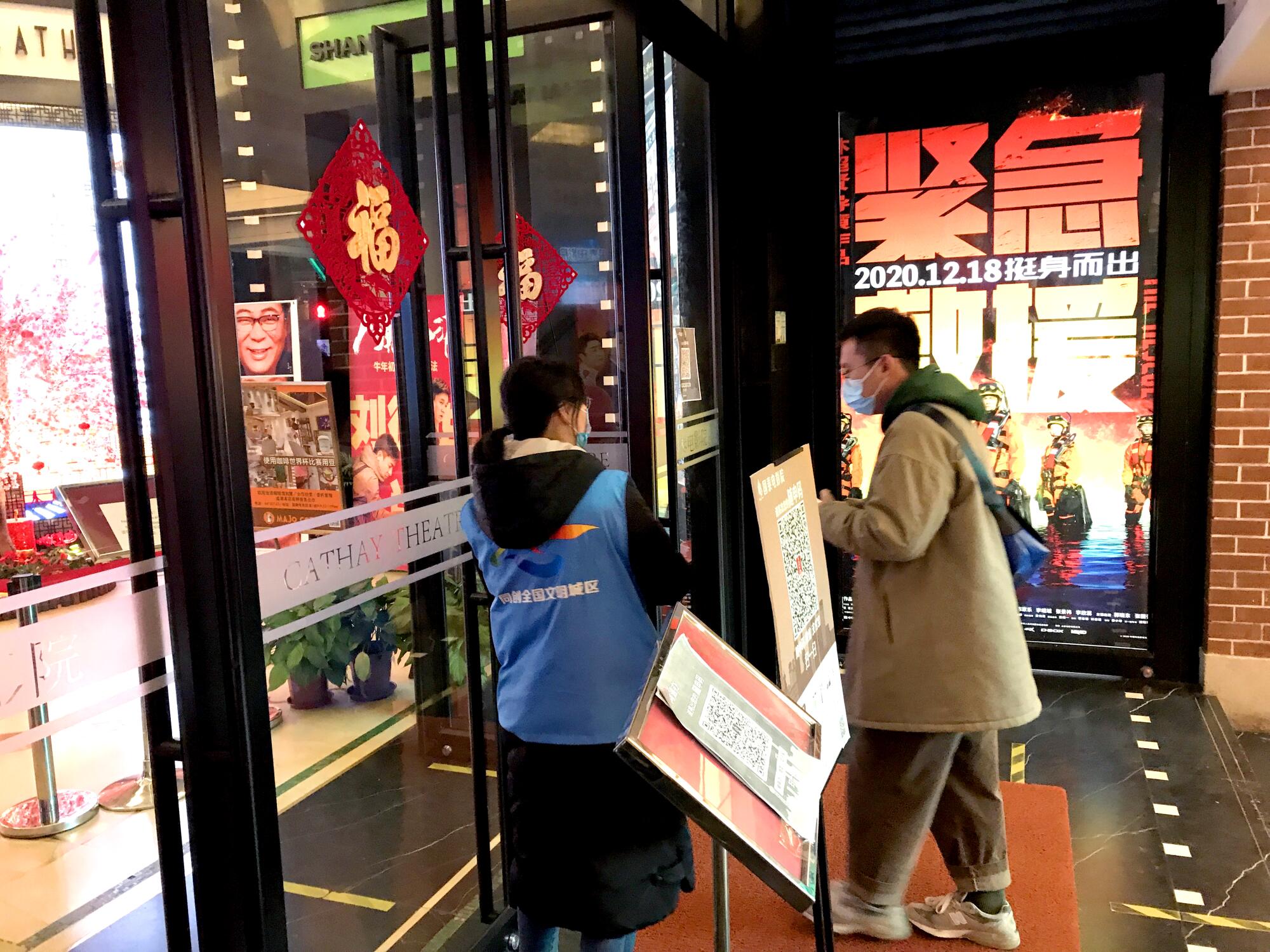
“Chinese regulators have increasing leverage over Hollywood studios,” said James Tager, research director at PEN America, who last year wrote a report on studio censorship for China. “Hollywood needs access to the Chinese market more and more, but China needs access to Hollywood films less and less.”
That reversal of fortunes is no accident. It is part of a vision set by Chinese leader Xi Jinping, Washington’s most potent adversary, who learned from Hollywood long ago that films are a wellspring of cultural power.
“America is a powerful nation in terms of culture because Americans say what they should say,” he told then-U.S. Ambassador Clark Randt at a dinner party in 2007 when Xi was still party secretary of Zhejiang province, according to leaked WikiLeaks cables.
“Americans have a clear outlook on values and clearly demarcate between good and evil. In American movies, good usually prevails,” Xi said. He enjoyed Hollywood movies about World War II such as “Saving Private Ryan,” he said, because “such Hollywood movies are grand and truthful.”
Chinese movies were instead frivolous stories about “bad things in imperial palaces,” he complained. They were not “promoting values” as they should.
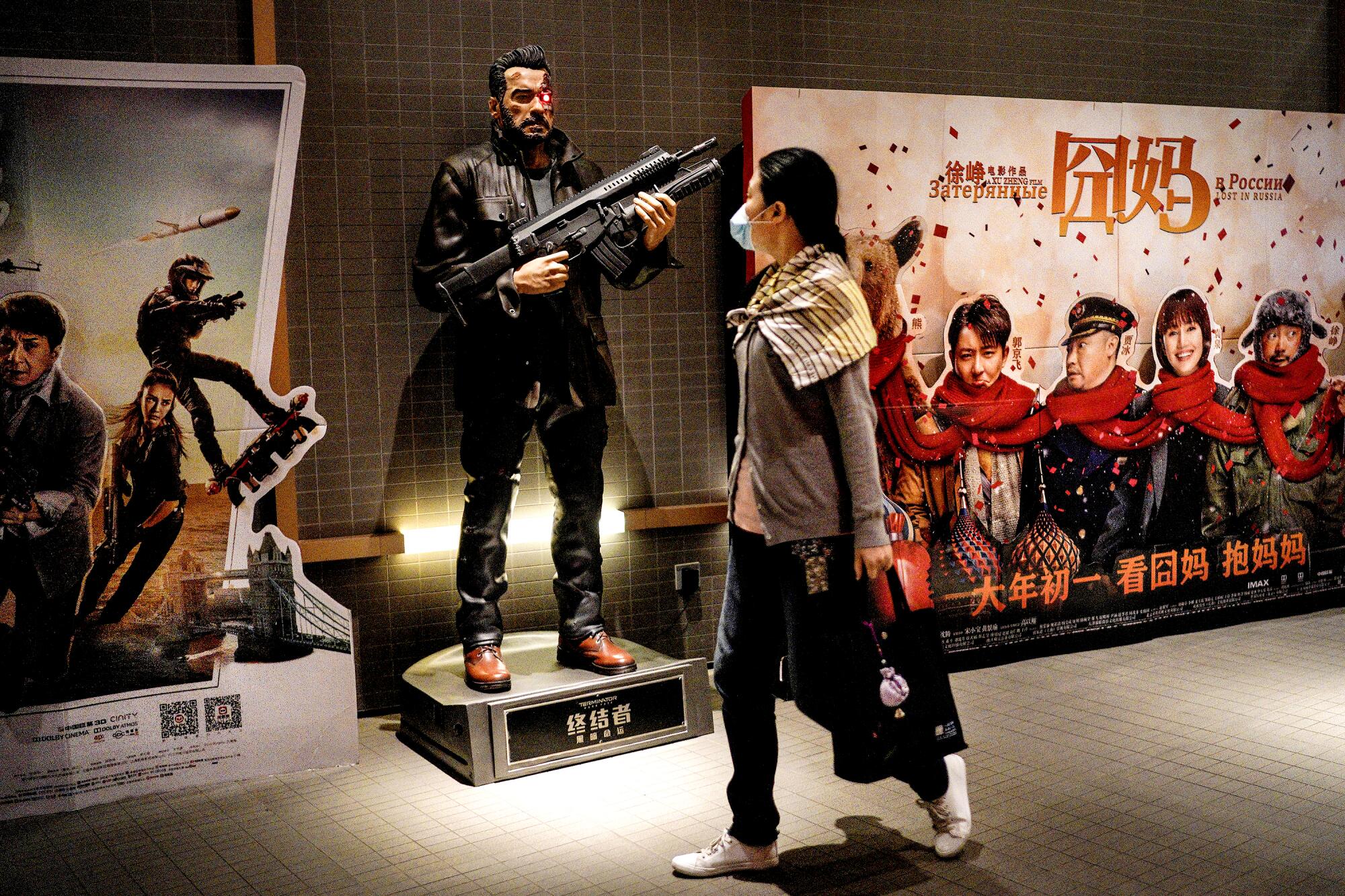
That has changed. Xi has placed movies under direct control of the propaganda department, tightened censorship and called for deploying art as a tool not only to mold national thinking, but also to combat Western cultural hegemony by projecting Chinese soft power abroad.
“It is necessary to guide the broad masses of cultural and artistic workers … to use heart and soul in expressing the era of greatness by writing nonstop songs of praise for the party, the motherland, the people, the heroes, to write a new historical epic of the Chinese ethnic people,” Xi said at a national meeting on propaganda in 2018.
Those “nonstop songs of praise” movies soon went into production. Major releases in the last two years have included “The Sacrifice,” about battling American troops during the Korean War; “My People, My Country,” a compilation of shorts celebrating victorious turning points in modern Chinese history; and “Days and Nights in Wuhan,” a documentary about the Wuhan coronavirus lockdown that extols the state’s response to the disease. Movies about the Chinese coast guard, Chinese firefighters, Chinese police and various other Chinese hero roles have also been released.
Chinese online slang has dubbed such works “main melody” movies, patriotic tales of a triumphant China. To liberal-minded Chinese, they are a contrived annoyance and at times a revision of history. Yet their box-office numbers are high.
Xi’s call to make the arts a tool for molding minds is classic Communist Party ideology, familiar to historians and survivors of the Mao Zedong era. In 1942, Mao said — quoting Lenin — that all art and literature should serve politics. “There is in fact no such thing as art for art’s sake,” he declared.
Film flourished in China in the early 20th century, especially in Shanghai, where Chinese leftist films thrived alongside Hollywood productions in foreign-concession cinemas that the ruling Kuomintang party could not control.
But within a year of the Chinese Communist Party’s takeover in 1949, Hollywood movies were banned as China entered the Korean War. Within four years, all of Shanghai’s private movie studios had been consolidated into one state-owned entity.
Many of Shanghai’s most famous stars were denounced, imprisoned and tortured during the Cultural Revolution of the 1960s and ’70s. Some were driven to suicide. Meanwhile, most of China watched only a handful of yangbanxi, “model works” of revolutionary operas and ballets that portrayed Mao leading the people’s struggle against foreign and class enemies.
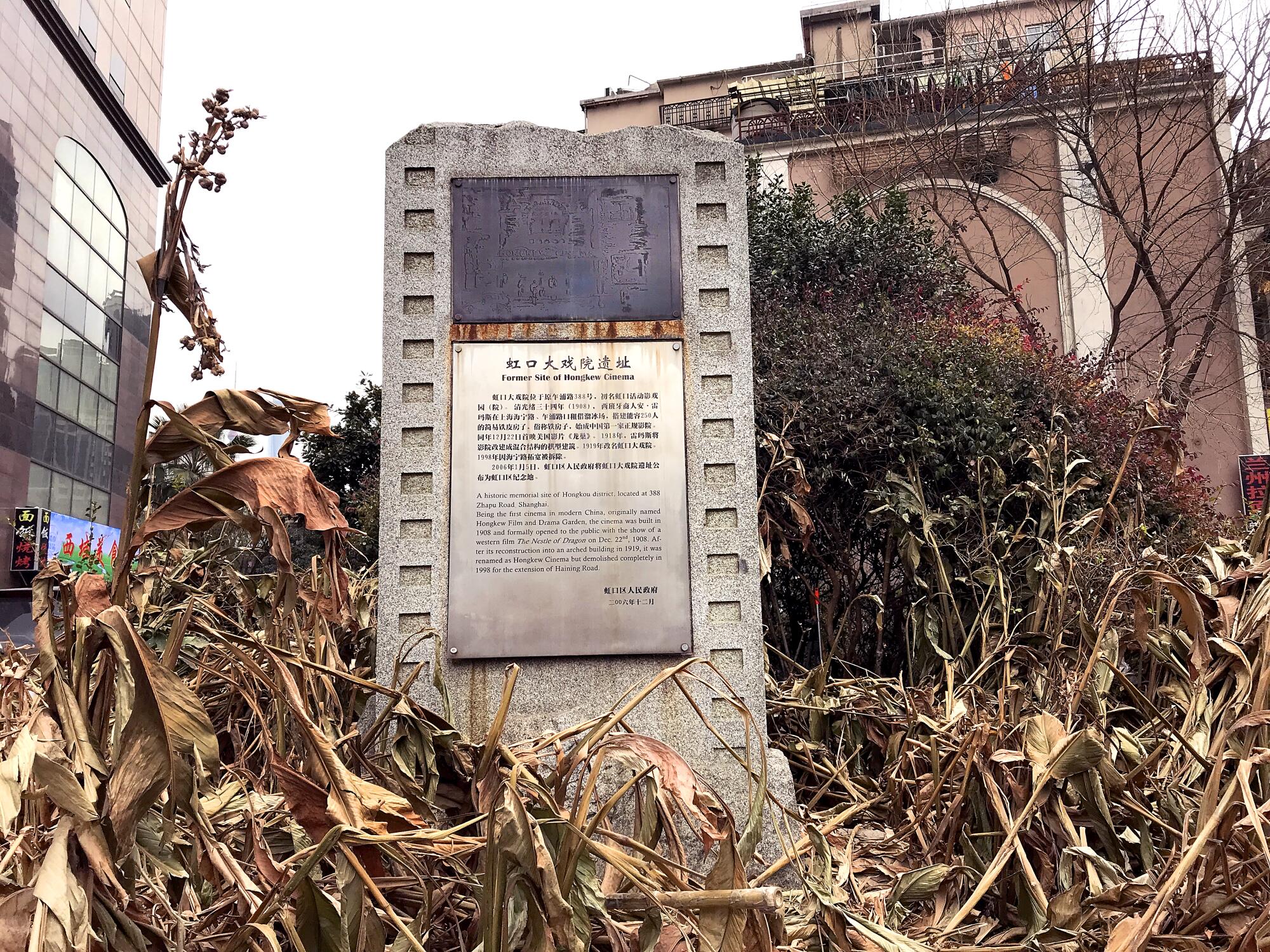
Individualism became taboo, replaced by “national consciousness,” said Paul Tong, a Shanghai-based independent filmmaker who researches film history. Movies were meant to inspire the masses’ minds toward revolution, not indulge in trivialities like romance, family or personal happiness.
Yet Shanghai never forgot Hollywood. On the streets, old Shanghainese sometimes winked and boasted of having seen “Lotus Blossoming From the Water,” the Chinese name for “Bathing Beauty,” a 1944 Hollywood musical starring Esther Williams, who performs synchronized swimming with a bevy of swimsuit-clad girls.
Even at the height of the Cultural Revolution, Shanghainese women would notice outside trends from Hong Kong movies, then defy the rules to secretly perm their hair and tuck in their uniform shirts — small, dangerous acts of individual expression.
That was Shanghai, forever chongyangmeiwai, a Chinese phrase that means “worshiping foreign things,” Tong said. It’s a derogatory term, something Chinese people were taught to denounce, but that Shanghainese shrugged off in their stubbornly materialistic ways.
“For city people, as long as something is good, we love it,” Tong said. “As long it’s fresh, who cares about the big ideologies or whether it’s foreign or not?”
Zhang Jishun, a retired historian of Shanghai who taught at East China Normal University, never knew Hollywood movies as a girl. Born in 1949, she only heard adults whisper of their old favorites Vivien Leigh and Gregory Peck, while her teachers cursed Hollywood films like “Bathing Beauty” as degenerate Western poison.
“We were taught that Shanghai was the worst, most capitalistic place,” said Zhang, who joined a generation of “sent-down youth” who left cities to perform rural labor in the 1960s, in part to get away from that politically undesirable background.
Yet even ideological youths like herself chafed at the monotony of yangbanxi and foreign films from like-minded socialist countries. They often watched one Soviet movie, “Lenin in 1918,” just to glimpse a seconds-long scene of the “Swan Lake” ballet, Zhang recalled.
“People would leave after that one scene,” she said. “There was no art, no beauty like that anywhere else.”
Only when China allowed the world in, decades later, and Hollywood movies were again permitted did Zhang finally watch “Bathing Beauty.” It was a revelation.
“In the past, we saw movies as ‘education,’ shaping your thoughts into a political view,” Zhang said. “But my first feeling of watching U.S. movies was that it’s art, it’s entertainment, it’s enjoyment.”
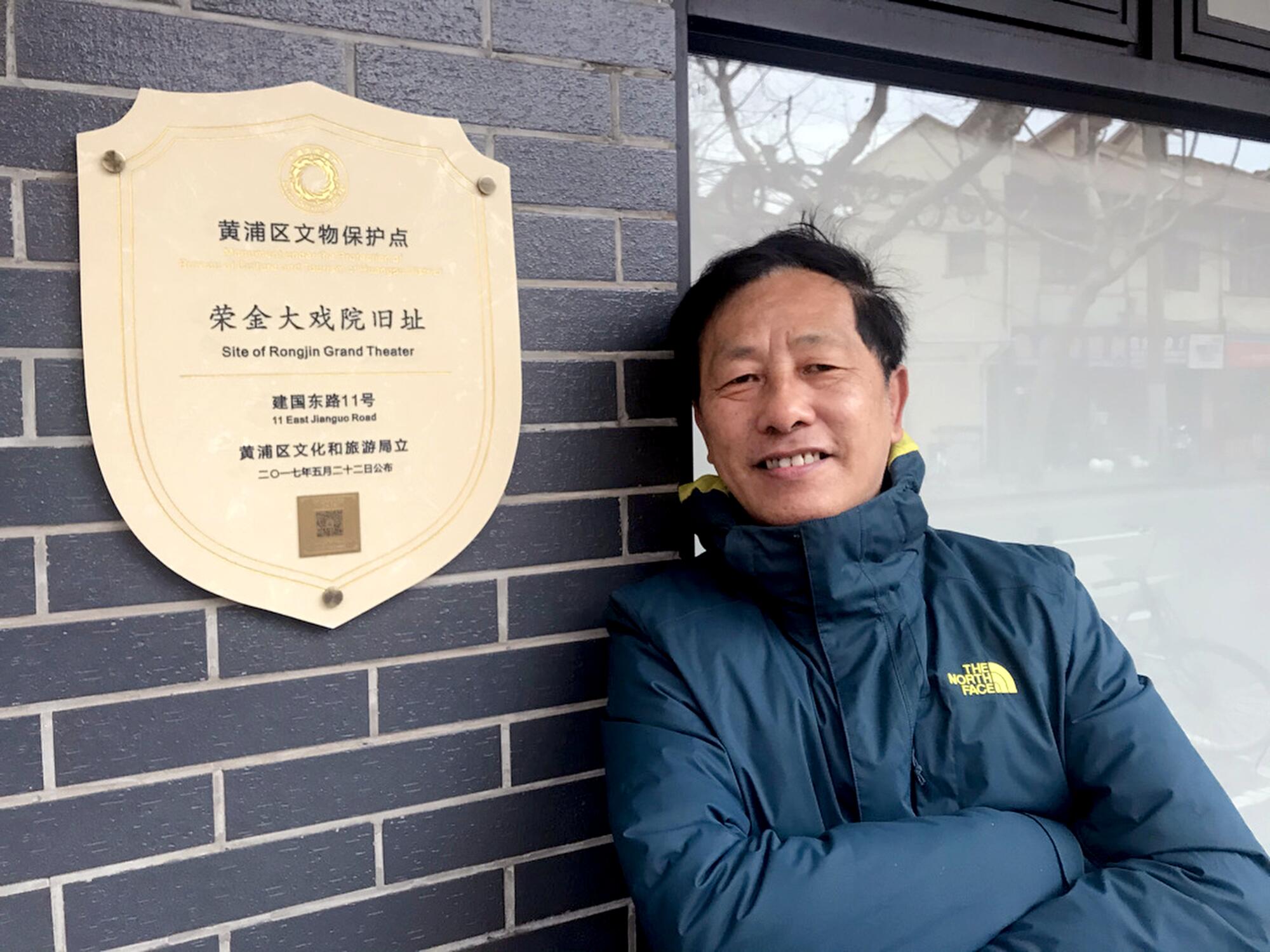
By the end of the Cultural Revolution, nobody wanted to watch model operas anymore, said Gong Lou, 63, a former projectionist who has worked in Shanghai’s cinemas since 1976. At that time, cinema workers sent tickets in bulk to state-organized work units, which would book out a whole theater and require their employees to watch the shows.
Things changed when China opened up in the 1980s, Gong said. Movies with real story lines appeared and everyone craved a ticket. Workers were assigned tickets by lottery: 50 lucky spots for 5,000 factory employees, 20 spots for 2,000. Cinema employees like Gong, who got reserved tickets for family members, were treated like superstars.
“There was a great restaurant across the street from our cinema,” Gong said with a grin. “Every month we’d give their manager two tickets, and every day I could eat their pot stickers for free.”
In 1994, Hollywood films returned to China. It was at first a response to Chinese “desperation,” said Stanley Rosen, a professor of political science at USC. China’s box office had declined drastically, especially after the 1989 Tiananmen Square massacre.
“They were looking for something to revive the film industry in China,” he said.
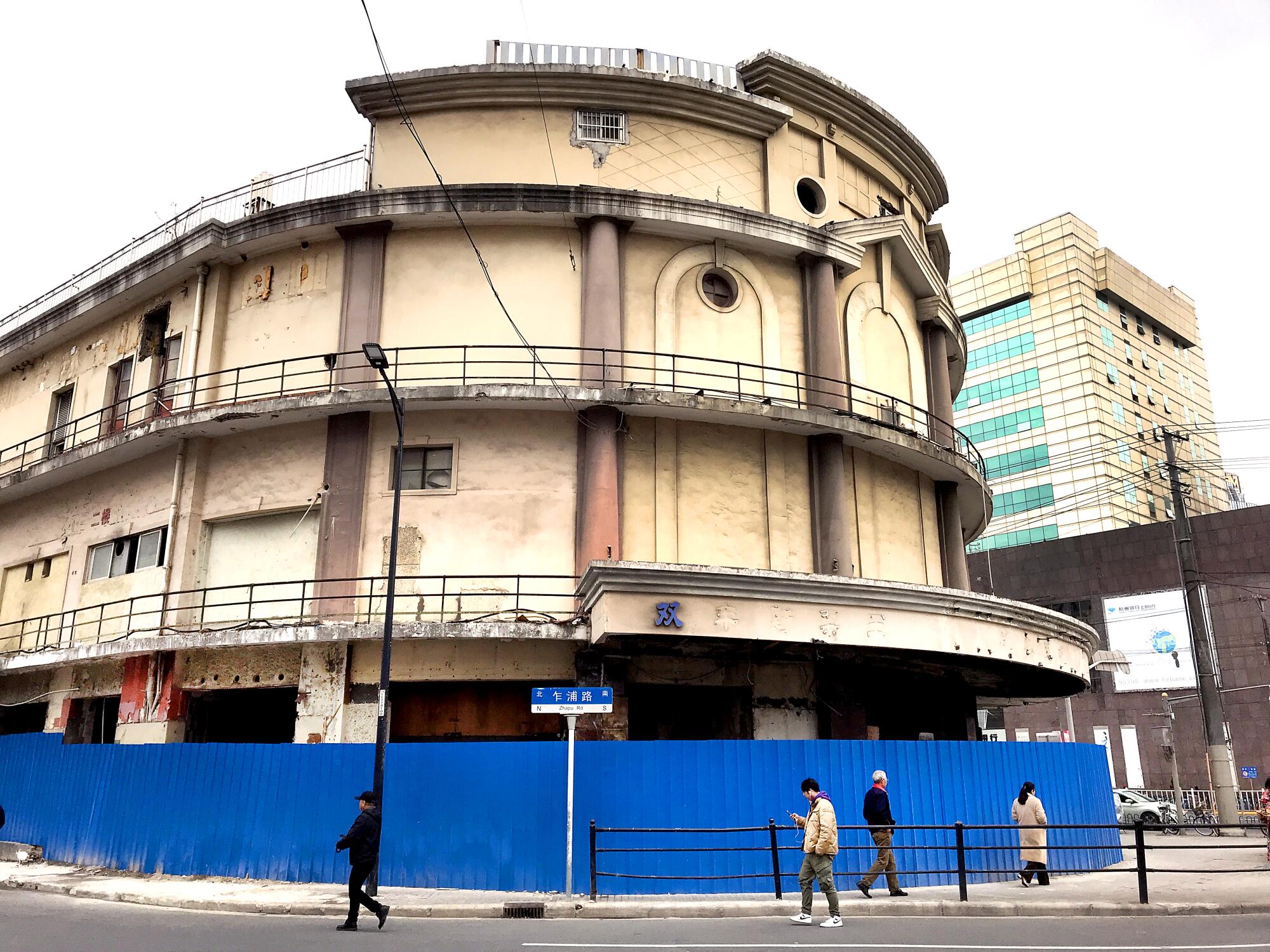
Yet foreign studios had to navigate restrictions, which have become increasingly strict. In 1997, Hollywood made three films that upset China: “Seven Years in Tibet” starring Brad Pitt, Martin Scorsese’s “Kundun” about the Dalai Lama, and “Red Corner” starring Richard Gere, a film that included portrayals of Chinese government corruption. Beijing banned these films and barred their production companies from doing business in China for the next five years.
“Even though the Chinese film market in those days was about the size of Peru, they knew they could influence the Hollywood studios,” Rosen said. Studios realized they were “only as strong as their weakest film,” he said. “If you make one film out of 30 that China doesn’t like, they could ban all your films. That really exercises a chilling effect.”
Since then, Hollywood studios have often recut films to appease censors. They place Chinese products on screen, do more shooting in China, and discuss potentially problematic themes and scenes with propaganda authorities.
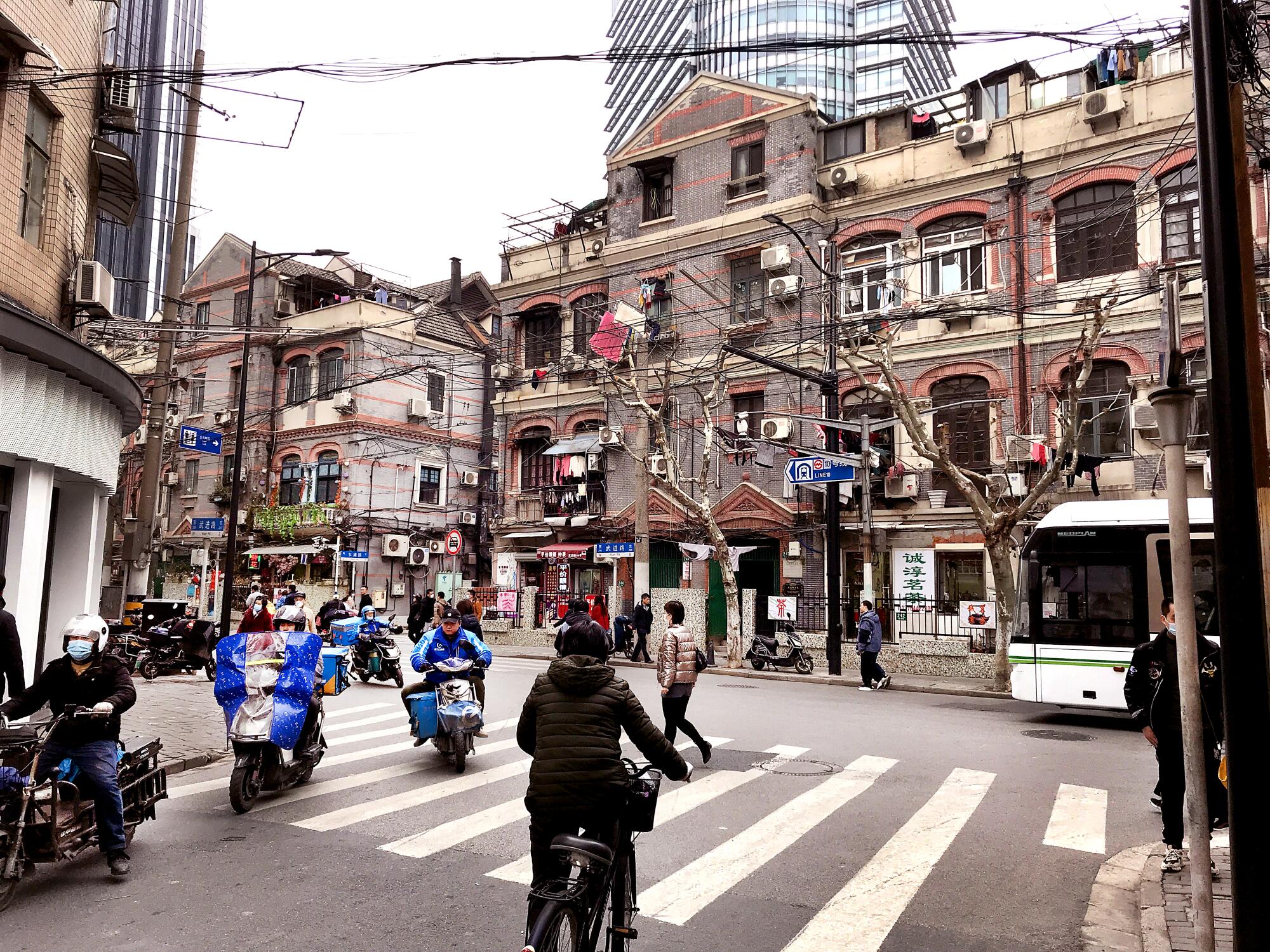
Despite such precautions, Hollywood films can still be denied a release. Regulators are often intentionally vague, leaving studios to guess at what they should self-censor to get approved.
In recent years, online nationalists have grown increasingly vocal in China, piling on to condemn and demand apologies from NBA teams, luxury brands and Hollywood studios they deem to have “insulted China.” Sony Pictures’ “Monster Hunter” was recently pulled from cinemas there amid an online backlash over a snippet of dialogue that Chinese viewers saw as a racist slur.
A U.S. debate over Hollywood self-censorship has been growing, with American lawmakers from both Republican and Democratic parties last year expressing concern over studios trying to appease Chinese regulators. Disney was criticized for filming “Mulan” in Xinjiang, where China has detained indigenous Uighur people en masse for forced “reeducation,” and praising Xinjiang’s public security bodies in the movie credits. The U.S. government has designated China’s actions in Xinjiang as genocide.
Hollywood self-censorship comes down to whether America places more value on free speech or on “maximizing shareholder value,” said Aynne Kokas, professor of media studies at the University of Virginia and author of a book about China’s influence on Hollywood. “It goes to the very core of what constitutes free speech and what constitutes democracy, and how important corporate earnings are in that framing.”
Rosen said: “If you want to do business in China, then you have to make some concessions. When you start doing that, it’s a slippery slope. How far are you willing to go?”
Whatever American studios decide may not matter much in China, where domestic movies’ dominance over the box office has steadily grown in recent years, reaching 64.1% in 2019 and more than 80% in 2020. All 10 top-grossing films in China last year were made in China or Hong Kong.
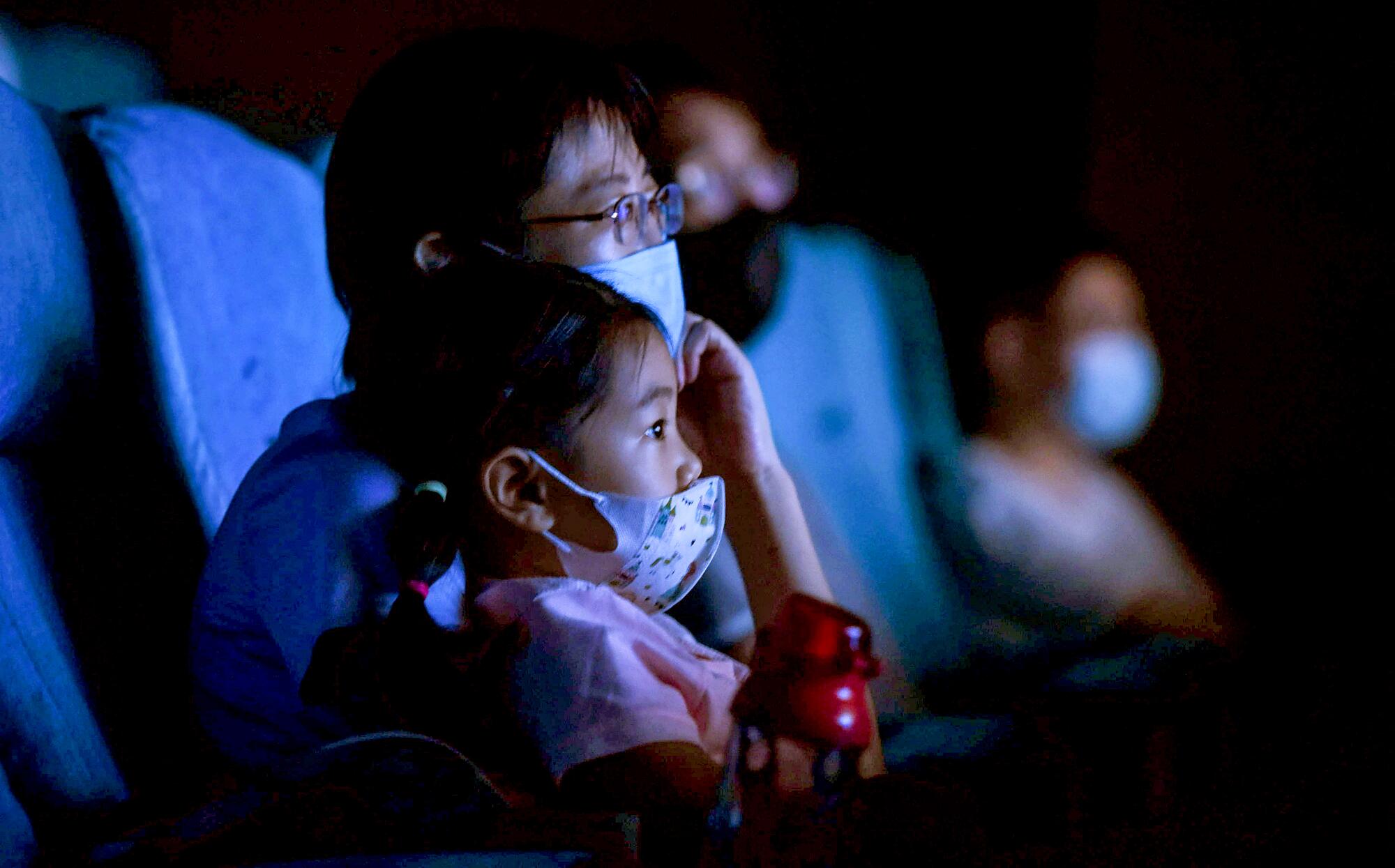
Younger generations do not feel the same lack of freedom that the Cultural Revolution generation felt, said Tong, the filmmaker. “National consciousness” is on the rise again, but this time, the party knows how to tell its stories in high definition and surround sound, with gripping story lines and cinematic beauty.
Shanghai’s old cinemas still bear memories of Hollywood, its nostalgic grandeur written in their red carpets and marble staircases, their bright lights and sleekly stenciled names. But now it is the party’s voice, not Hollywood’s, that has its say on their screens.
Times staff writer Ryan Faughnder in Los Angeles and Ziyu Yang of The Times’ Beijing bureau contributed to this report.
More to Read
Sign up for Essential California
The most important California stories and recommendations in your inbox every morning.
You may occasionally receive promotional content from the Los Angeles Times.











